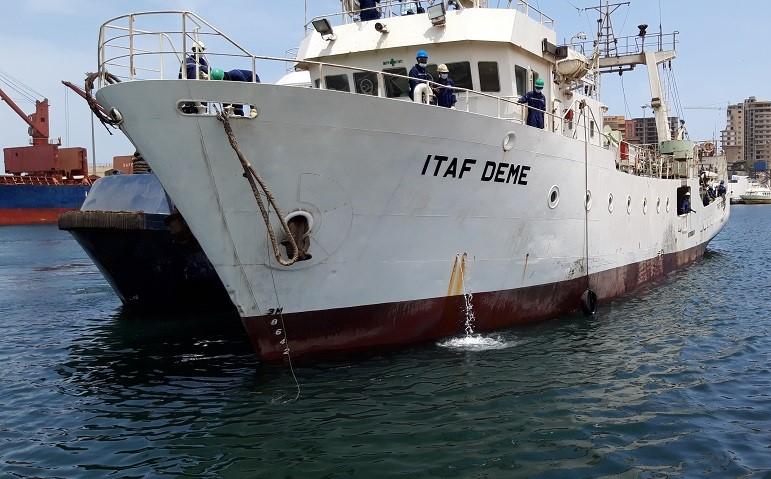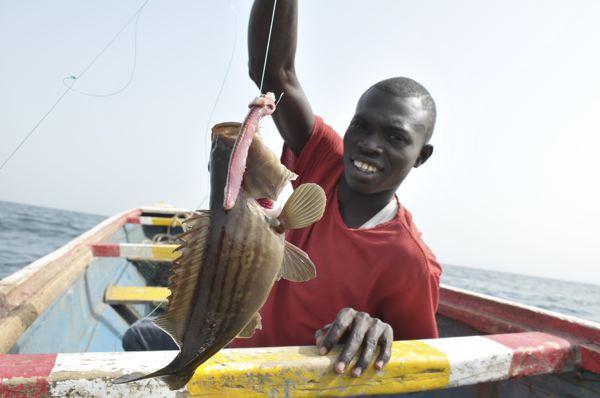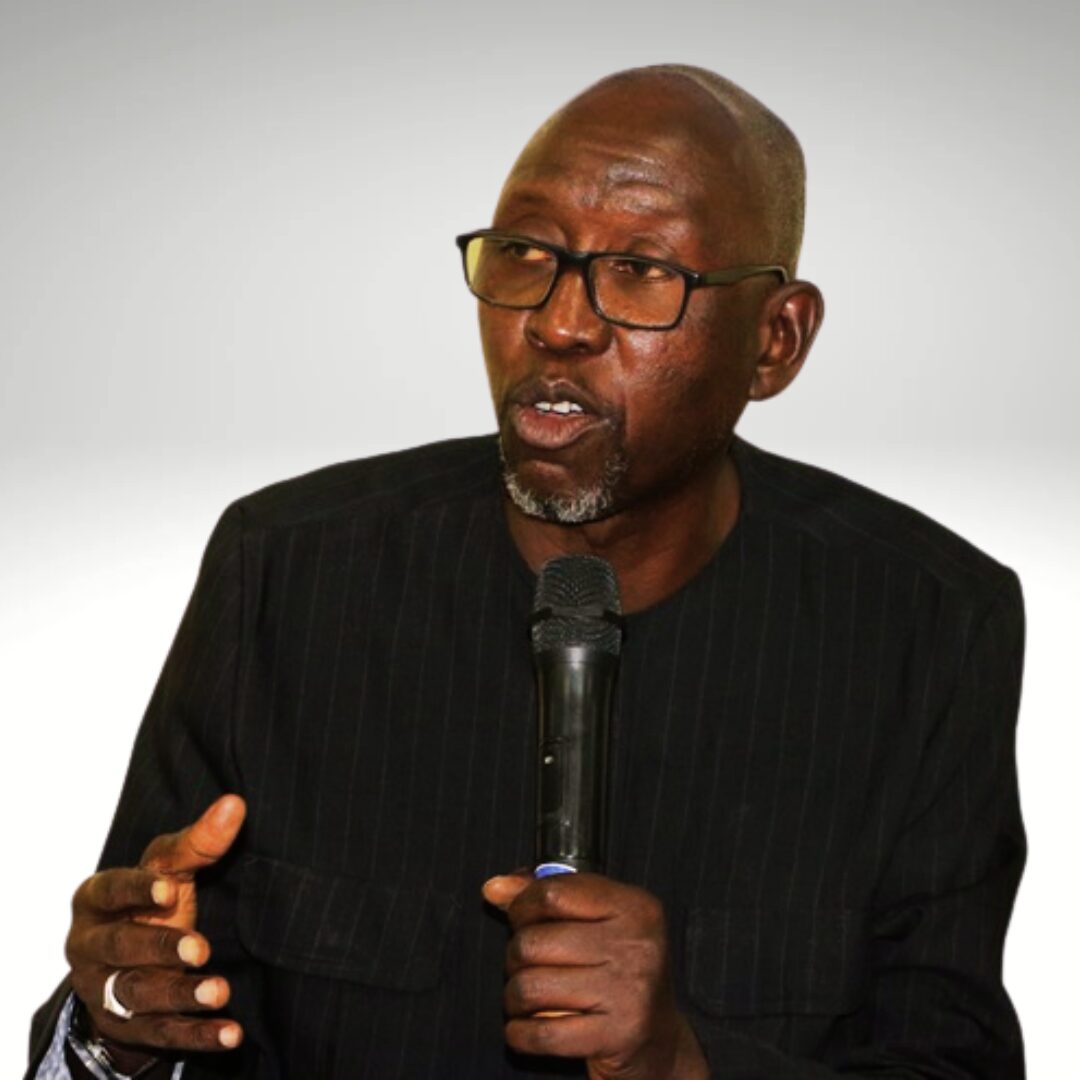On 27 May 2024, in a press release, the European Commission pre-identified Senegal as a non-cooperating country in the fight against IUU fishing after noting serious shortcomings “in the system put in place by the country to comply with its international obligations as a flag State, port State, coastal State or market State”. The press release also states that the shortcomings in terms of Monitoring, Control and Surveillance “concern vessels flying the Senegalese flag and operating in waters outside the country’s jurisdiction, as well as controls carried out on foreign fishing vessels in the port of Dakar”.
The evaluation of the fisheries agreement between the EU and Senegal states that: “Since 2020, the EU has put numerous questions to Senegal at the annual meetings of ICCAT (International Commission for the Conservation of Atlantic Tunas) concerning the monitoring of the Senegalese fleet operating in the ICCAT area and the controls implemented in the port of Dakar […]. In 2021, 2022 and again in 2023, the EU has identified exports from Senegal to the European market in excess of the quotas allocated to Senegal by ICCAT”.
 For example, the EU noted that Senegal, which had a quota of 225 tons of North Atlantic swordfish for 2020, only declared that it had caught 10 tons of swordfish that year. But “checks carried out on imports into the EU show that in 2020 Senegal validated the export of 311 tons of this swordfish by a single vessel”, i.e. 30 times more than declared. The Ministry needs to communicate how this situation came about, and the perpetrators at all levels of responsibility need to be punished.
For example, the EU noted that Senegal, which had a quota of 225 tons of North Atlantic swordfish for 2020, only declared that it had caught 10 tons of swordfish that year. But “checks carried out on imports into the EU show that in 2020 Senegal validated the export of 311 tons of this swordfish by a single vessel”, i.e. 30 times more than declared. The Ministry needs to communicate how this situation came about, and the perpetrators at all levels of responsibility need to be punished.
High-risk’ tuna vessels from the point of view of IUU fishing have used the Senegalese flag, as well as other flags of convenience, to evade the rules.
According to the recently published list of Senegalese-flagged vessels authorized to fish, there are currently eight tuna vessels flying the Senegalese flag, including five purse seiners managed by Senegalese companies.
The pre-identification of Senegal as a non-cooperating country in the fight against IUU fishing does not imply that these tuna vessels were involved in IUU fishing operations under the Senegalese flag.
For small-scale fishing, the problem of IUU fishing is in the coastal zone
The evaluation of the EU-Senegal fisheries agreement agrees, pointing out that, despite the efforts made by Senegal in recent years, the level of control and surveillance of fishing in the country’s waters is not sufficient: “The result is a large number of IUU fishing activities carried out by both industrial fishing (national and foreign) and small-scale fishing. Despite the adoption of a new law, the development of a National Action Plan to combat IUU fishing, adopted in 2015 and updated in 2023 for the period 2023-2028, and the acquisition of operational resources, IUU fishing activities persist”. The assessment continues: “This situation is all the more worrying as coastal demersal stocks (deep-sea fish) with a high market value (mainly exported) remain fully exploited, or even overexploited. In addition, fishing pressure on locally consumed species (small pelagics) is increasing due to the growing export of these species, with a serious risk of supply shortages on the local market”.
One of the causes of this situation, denounced by small-scale fishermen and civil society, is the proliferation of joint front companies. “Under the guise of these joint ventures, Senegalese industrial fishing is in the hands of foreign interests that do not respect our regulations”, Gaoussou Gueye, President of CAOPA, recently emphasized.
Following the publication by the new Minister for Fisheries of the list of boats that had received authorization, it was noted that many of the “Senegalised” boats were of Chinese origin. In 2020, the APRAPAM association denounced the fact that some boats of Chinese origin, in the process of receiving a fishing permit and being “senegalised”, had a history of IUU fishing, such as the RUISHUN boats, which had previously been expelled from Madagascar for illegal fishing in coastal areas.
As Gaoussou Gueye points out, “some of these vessels do not hesitate to hide behind the Senegalese flag to take advantage of the fishing protocols negotiated by Senegal with Guinea-Bissau and Liberia in particular. They take advantage of the fishing resources of these countries, often without respecting the legislation in force either, at the risk of tarnishing relations between Senegal and these neighbours”.
Non-compliance with the rules by European vessels operating under fishing agreements
In the context of the latest protocol to the Sustainable Fisheries Partnership Agreement (SFPA) between the EU and Senegal, a number of problems have been raised concerning non-compliance with the rules laid down in the agreement. With regard to hake fishing, for example, the assessment of the agreement indicates that in 2019 the Total Allowable Catch (TAC) was exceeded: total catches of hake – an overexploited species – by European trawlers reached 3,052 tons, whereas the annual TAC is 1,750 tons under the Protocol. As far as we know, these excess catches were marketed in Europe without any problems. This failure by hake trawlers to comply with the rules is totally incompatible with managing this resource in such a way as to ensure its recovery, and is a further justification for withdrawing access to hake from any future protocol to the fisheries agreement.
Crucial questions arise
It is imperative that the EU, signatory to the partnership agreement with Senegal, applies and rigorously respects the content of the Protocol. Some crucial questions arise: How is it that the Protocol authorizes the fishing of 1,750 tons per year, when twice as much is fished? How was this surplus able to obtain a catch certificate to be exported and marketed in Europe? What role did the Senegalese and European control systems play in this process? How effective is the European health control system?
In this situation, Senegal must put the ball on the ground, question itself and correct the shortcomings that have been identified. Communicate and involve stakeholders at all levels to ensure absolute transparency.
Another problem of compliance with the rules by vessels under agreement hit the headlines when four Spanish pole-and-line tuna vessels were boarded in June 2020 for collecting live bait in the prohibited zone in Hann Bay, with fines of FCFA 20 million per vessel.
Why a yellow card now?
According to the EU, since 2019 it has been asking Senegal questions about its action to counter IUU fishing in the ICCAT area. The EU has reportedly received no response. So what is the justification for issuing a yellow card now, when, on the other hand, negotiations are under way for the renewal of the AFPA protocol between the two countries?
One factor presented as essential in triggering Senegal’s pre-notification procedure appears to be the change of government. In its press release, the European Commission “recognizes the measures recently taken by the new government (namely the publication of the list of fishing licenses and the audit of the fishing fleet) and is reassured by this fact…” The European Commission seems to be of the opinion that with the new authorities, there is a better chance of making progress together in the fight against IUU fishing.
By pre-notifying Senegal, the Commission is initiating a formal dialogue with the country. This decision does not entail any trade measures. However, as the Commission points out, “in the event of prolonged and continuous non-compliance, countries may ultimately be subject to an identification procedure (“red card”), which entails a ban on exporting their fishery products to the EU market”.
It is to be hoped that dialogue will enable Senegal to combat IUU fishing more effectively. A halt to exports would unfairly penalize Senegal’s small-scale fishing sector, which exports a large proportion of its products to the lucrative European market. It is also to be hoped, for the benefit of local fishing communities, that the dialogue will not be limited to issues relating to IUU operations in tuna fishing, and will address the problems caused by vessels engaged in illegal fishing in coastal areas, where they cause significant negative impacts for small-scale fishing.
One of the demands of small-scale fishing is to combat incursions into coastal areas by vessels using destructive gear, such as coastal trawlers. Participatory monitoring has been vaunted for several decades in Africa, but it has not been legally defined in most countries and generally lacks administrative, logistical and financial support.

For the system to work, artisanal fishermen must be provided with adequate equipment, enabling them to inform the authorities directly of suspicious activities, and the respective roles and responsibilities of fishermen and the authorities must be clearly defined.
As part of the forthcoming renegotiation between the EU and Senegal to work together to combat IUU fishing, both parties – and not just Senegal – need to review their attitude. Senegal must finally assume its responsibilities to manage the fisheries sector in a transparent manner and ensure that everyone abides by the rules.
Given that some boats of European origin, fishing under joint ventures or even under the fisheries agreement, do not comply with the rules, the European Union has a responsibility that it must recognize as part of this dialogue with Senegal: that of better controlling boats of European origin, and that of heavily penalizing them when they do not comply with the rules.
APRAPAM


